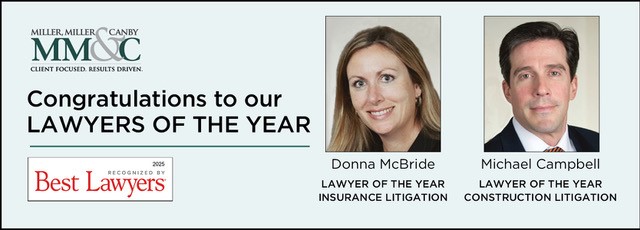 Many people sign their estate planning documents, file them away and forget about them. As things change in our lives or as tax laws change, these estate planning documents may become outdated. For example, people who are appointed for important positions, such as successor personal representatives or trustees, or as guardians, may no longer be able to serve. In some cases, provisions for children may no longer meet the children's needs or the intended desires for the estate plan. Estate plans must be updated and maintained to stay current and relevant.
Many people sign their estate planning documents, file them away and forget about them. As things change in our lives or as tax laws change, these estate planning documents may become outdated. For example, people who are appointed for important positions, such as successor personal representatives or trustees, or as guardians, may no longer be able to serve. In some cases, provisions for children may no longer meet the children's needs or the intended desires for the estate plan. Estate plans must be updated and maintained to stay current and relevant.
Maintaining Your Trust
More people today use trusts in their estate planning. When a trust is designed and created, it reflects existing client conditions and known circumstances in the law and tax code. Inevitable changes in the law, tax code, the client's family, and financial circumstances affect how appropriate the trust plan remains. Without routine updating, estate plans often fail to achieve the very goals the trust documents were intended to accomplish. In order to receive the full benefit of your plan, it is important to review your trust with an attorney to ensure that all assets work as intended and your estate plan is up to date.
Funding Your Trust
For a trust to work properly, it must be funded. Trust funding is accomplished by changing asset title, beneficiary designations, or both. Every time new assets are acquired or old assets disposed of, the trust assets should be reviewed. Unfunded trusts can result in the trust plan failing to meet the very objectives it was designed to accomplish.
Avoiding Funding Pitfalls
Many hazards plague the trust funding process. Clients who attempt to fund their trusts without professional guidance or legal expertise run the risk of committing costly harm and, unfortunately, sometimes irreparable damage.
Some of the most dangerous trust funding pitfalls include:
• Using a Quit Claim Deed to fund real property to a trust.
Consequence: This strategy may void your title insurance policy on the parcel being funded.
• Changing ownership on any qualified retirement plans [e.g. IRAs, 401(k)s, 403(b)s etc.] to a Living Trust.
Consequence: The IRS will consider this transfer to be a total and complete withdrawal of your retirement plan, resulting in the entire plan amount being treated as taxable income.
• Not adding your trust as an "additional insured" to your property and casualty insurance policy.
Consequence: This omission may cause your insurance not to be effective for the property it insures.
• Not obtaining lenders consents when retitling property.
Consequence: This may trigger a "due on transfer" provision and your total mortgage or loan balance may be immediately due in full.
Funding Specific Assets
When transferring assets to your trust, it's important to be knowledgeable about how various types of assets are best funded and then coordinate that with the custom goals of your estate plan. For example, in some cases it is advisable to change ownership by re-titling the asset to the trust. With other assets, it's wise to change only beneficiary designations. In some circumstances it may be prudent to change both. Being informed about these matters is only part of the process.
Other important factors to consider include:
• How to draft legally sound trust funding transfer documents
• How to obtain and accurately complete company-specific transfer forms required by many financial institutions
• How to identify and provide the trust documentation required by financial companies in order to fund the asset properly
• How to secure written verification documenting that an asset has in fact been properly transferred to the trust
Miller, Miller & Canby's estate planning attorneys offer estate plan reviews and assistance with trust maintenance. Miller, Miller & Canby has assisted clients with estate & tax planning for more than 65 years. Glenn Anderson leads the Business & Tax and Estates & Trusts practice groups at Miller, Miller & Canby. As both a CPA and a practicing attorney, he has developed a recognized expertise in taxation law. Please feel free to contact Glenn or any of the estate planning attorneys at Miller, Miller & Canby with your estate & tax planning needs. Learn more about Miller, Miller & Canby's Estates & Trusts practice here.








Share this Article: